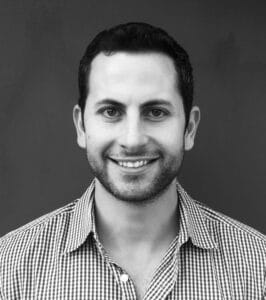Over 2 million Americans currently misuse prescription opioids. In fact, about 15 million people around the world struggle with opioid addiction.
Drug overdoses are now the leading cause of death in the US for adults under 50. Opioids also account for over half of all drug overdose deaths.
Do you think you have opioid addiction? Admitting the problem is the first step. With opioid addiction treatment in Los Angeles, you can get the help you need.
Keep reading to discover everything you need to know about opioid addiction. After reading this guide, you can make a smarter choice for your future. Read on to learn more.
Opioids are a class of drugs created from the opium poppy plant. These drugs can impact the brain in different ways. Namely, they block pain signals sent to the brain, making them effective pain killers.
A doctor might prescribe opioids in controlled amounts if you’re in intense pain. These medications cause the brain to release endorphins. Endorphins are a neurotransmitter that can cause euphoric, happy feelings.
Opioid medications are extremely addictive. Some people eventually turn their prescription painkillers into illicit drugs like heroin.
Opioid addiction can take over your life. It can also lead to deadly consequences. If you’ve become addicted to one of these substances, seek help.
Opioid addiction treatment in Los Angeles can ensure you get the professional help and care you need.
Your risk of opioid addiction can increase based on certain behavioral, environmental, and genetic factors. Misusing medications could lead to substance abuse and addiction as well.
If your doctor prescribed opioids as part of your medical treatment, make sure to follow the instructions carefully.
Opioid addiction can have a psychological, behavioral, and physical impact on your life. If these symptoms sound familiar, consider finding opioid rehab in Los Angeles. Professional help can ensure you detox and heal safely.
Opioid addiction can have an impact on your mental health. Here are a few psychological and behavioral symptoms you might develop:
You might become so focused on your opioid use that you start abandoning relationships and responsibilities. Your inhibitions can waver, leading to reckless behavior. You could get hurt or find yourself in a legal situation.
If these symptoms sound familiar, consider opioid addiction recovery.
Opioid addiction can also impact your physical health.
If you’ve noticed your health has started deteriorating lately, consider opioid rehab in Los Angeles. Otherwise, prolonged opioid addiction can lead to an overdose.
Consider seeking opioid addiction treatment in Los Angeles before you develop these issues.
Some people try to stop using opioids on their own. After prolonged, heavy use, your body will need time to filter out the drugs. This process could cause withdrawal symptoms.
Withdrawal symptoms are your body’s response to an absence of opioids.
You can speak with a professional opioid rehab in Los Angeles to develop your treatment plan. Here are a few options you can discuss.
Inpatient treatment starts with a complete detox to remove opioids from your system. You can also work with professionals to get to the root of your addiction. Then, you can identify healthy coping mechanisms for the future.
Individual therapy can help throughout the process. You can work one-on-one with a therapist.
They’ll help you identify your unique triggers.
You can also request holistic therapy as a part of your addiction rehabilitation. Holistic treatment can help you build a life to prevent a relapse.
You might consider group or family therapy as well.
It’s important to find a highly-trained staff that tailors treatment based on your distinct needs. Consider researching evidence-based treatments, too. You can get the help you need to avoid a relapse in the future.
You might consider medically-assisted treatment (MAT) as well—this form of treatment pairs counseling and behavioral therapies. You can decrease the risk of relapse and get relief for your withdrawal symptoms.
According to one study, opioid overdoses decreased once MAT became available.
During your addiction treatment, you’ll also gain a community of support to help you every step of the way. Finding an opioid rehab in Los Angeles can help you live a better life.
Don’t let your opioid addiction lead to a drug overdose. Instead, consider opioid addiction treatment in Los Angeles. Finding an opioid rehab in Los Angeles can help you get the professional help you need.
You can start your road to recovery and stay on it without the worry of relapsing.
Ready to get started? We’re here to help every step of the way.
Contact us today to discuss addiction help.
At No Matter What Recovery, we offer comprehensive outpatient rehab programs designed to support individuals through every stage of their recovery journey and to cater to their unique needs. Our levels of care include:
The length of opioid rehab varies depending on individual needs and progress. A typical outpatient program can last anywhere from several weeks to several months. Long-term support options, including continued outpatient therapy and aftercare support, are also available to help sustain recovery and prevent relapse.
At our recovery center we use a variety of evidence-based therapies, including:
Yes, No Matter What Recovery offers comprehensive treatment for co-occurring disorders, also known as dual diagnosis. Our integrated approach addresses both substance use disorders and mental health conditions simultaneously. This includes personalized treatment plans that combine therapy, counseling, and support for managing conditions such as depression, anxiety, PTSD, and bipolar disorder alongside addiction recovery. Our goal is to provide holistic care that promotes overall well-being and long-term recovery.

Dr. Eric Chaghouri is our Medical Director at No Matter What Recovery. Since completing his forensic psychiatry fellowship, he has established a successful and thriving practice in Southern California, focusing on treatment of co-occurring psychiatric and addictive disorders.

Dr. Eric Chaghouri is our Medical Director at No Matter What Recovery. Since completing his forensic psychiatry fellowship, he has established a successful and thriving practice in Southern California, focusing on treatment of co-occurring psychiatric and addictive disorders.